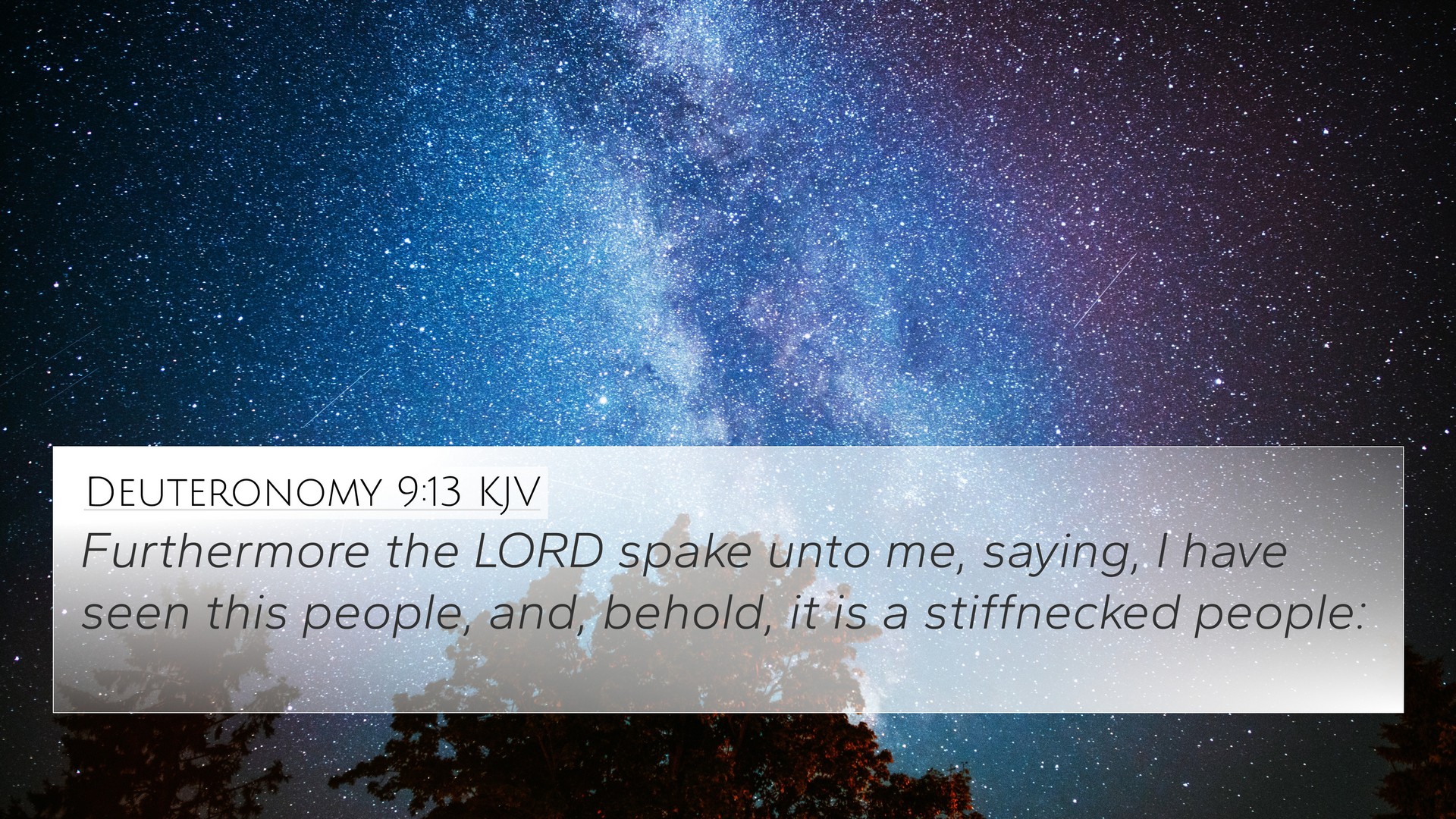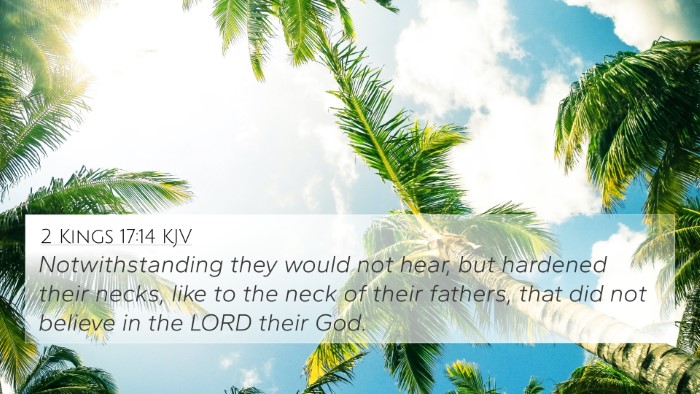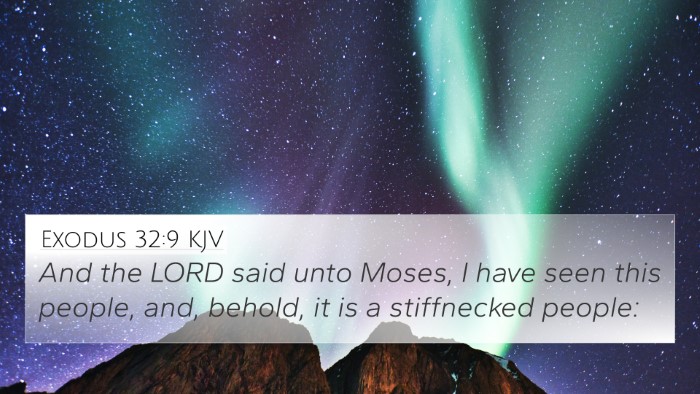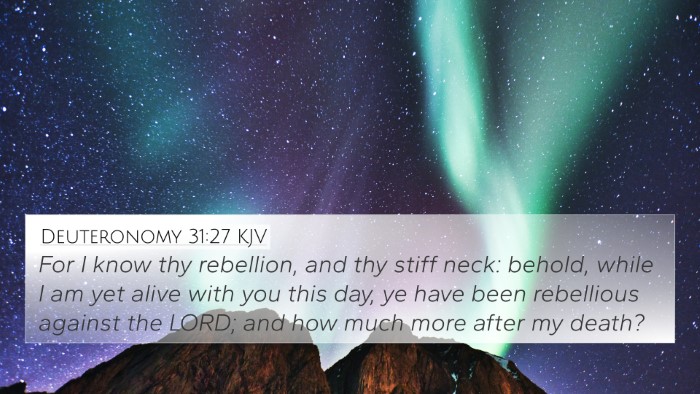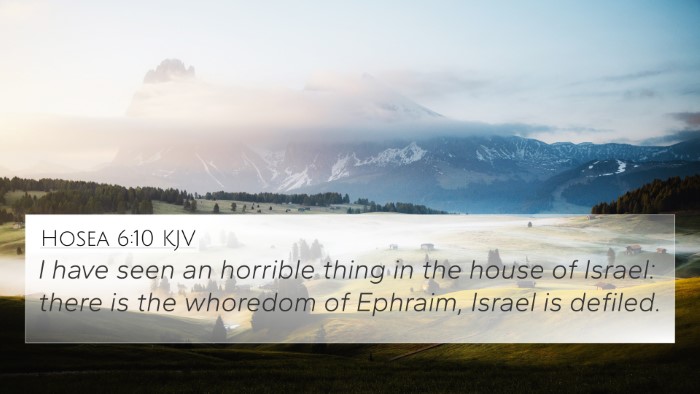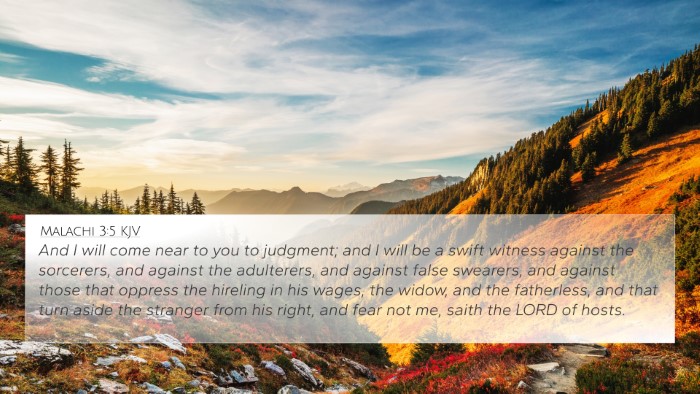Understanding Deuteronomy 9:13
Deuteronomy 9:13 states: "Furthermore the LORD spake unto me, saying, I have seen this people, and, behold, it is a stiffnecked people." This verse is a part of Moses' discourse to the children of Israel, as he recalls God's warnings and judgments upon them. The verse highlights the spiritual state of the Israelite people and serves to remind them of their shortcomings.
Summary of Insights from Public Domain Commentaries
This section synthesizes insights from renowned biblical commentators such as Matthew Henry, Albert Barnes, and Adam Clarke to provide an enriched understanding of Deuteronomy 9:13.
Matthew Henry's Commentary
Matthew Henry notes that the term "stiffnecked" is emblematic of a rebellious heart unwilling to submit to God’s guidance. He emphasizes that God’s observation of the people’s attitudes is not only an indictment but also a call to repentance. Henry stresses the gravity of disobedience, particularly in light of the covenant relationship they have with God.
Albert Barnes' Notes
Albert Barnes explains that being called a "stiffnecked people" signifies a refusal to change one's ways despite encountering God's commands and corrections. He connects this characterization of the Israelites to other instances in scripture where God's patience with His people is tested. Barnes also discusses God's desire for His people to humble themselves and follow His statutes, which sets a stage for their future blessings or curses based on their adherence.
Adam Clarke's Commentary
Adam Clarke elaborates on the significance of God's direct communication to Moses about the nature of the people. Clarke highlights the emotional weight of the term "stiffnecked," suggesting it reflects a broader human tendency to resist divine guidance. He emphasizes that such resistance not only frustrates God's plans but also leads to significant consequences for the community. Clarke advocates for understanding this context as a call for self-examination and humility before God.
Cross-References for Deuteronomy 9:13
Understanding Deuteronomy 9:13 is enhanced through cross-referencing with other scriptures. Here are some pertinent verses:
- Exodus 32:9: "And the LORD said unto Moses, I have seen this people, and, behold, it is a stiffnecked people."
- Acts 7:51: "Ye stiffnecked and uncircumcised in heart and ears, ye do always resist the Holy Ghost: as your fathers did, so do ye."
- Jeremiah 5:23: "But this people hath a revolting and a rebellious heart; they are revolted and gone."
- Zechariah 7:11-12: "But they refused to hearken, and pulled away the shoulder, and stopped their ears, that they should not hear."
- Psalm 78:8: "And might not be as their fathers, a stubborn and rebellious generation; a generation that set not their heart aright, and whose spirit was not steadfast with God."
- Deuteronomy 31:27: "For I know thy rebellion, and thy stiff neck: behold, while I am yet alive with you this day, ye have been rebellious against the LORD; and how much more after my death?"
- Isaiah 48:4: "Because I knew that thou art obstinate, and thy neck is an iron sinew, and thy brow brass."
Thematic Connections and Interpretations
The themes found in Deuteronomy 9:13 resonate throughout Scripture. The depiction of human rebellion against divine authority is a recurring motif. The term "stiffnecked" also aligns with numerous theological discussions regarding the heart's disposition toward God, repentance, and the consequences of disobedience. This verse invites a comparative Bible verse analysis by exploring how various authors of both the Old and New Testaments address similar themes.
Tools for Bible Cross-Referencing
In studying Deuteronomy 9:13, several resources are instrumental in facilitating insights into cross-references:
- Bible Concordance: A tool that helps locate specific words and their occurrences throughout the Bible.
- Bible Cross-Reference Guide: A guide that organizes related verses by themes or concepts.
- Bible Reference Resources: Comprehensive materials that provide insights into different parts of the scripture.
- Bible Chain References: A method that connects verses based on related themes and teachings.
Practical Guidelines for Cross-Referencing Bible Scriptures
For those seeking to understand the link between scriptures like Deuteronomy 9:13 and others, here are some practical methods:
- Utilize a Bible Cross-Reference System to explore narratives or teachings that bridge the Old and New Testaments.
- Engage in Cross-Referencing Bible Study Methods to facilitate deep dives into specific passages.
- Identifying Connections Between Old and New Testament writings enhances our understanding of Biblical themes and continuity.
- For Bible cross-references for sermon preparation, focus on thematic teachings related to obedience and rebellion.
Conclusion
Deuteronomy 9:13 encapsulates profound truths about humanity's relationship with God, characterized by stubbornness and the need for humility. By combining insights from effective Bible commentaries and employing tools for biblical cross-referencing, believers can gain a deeper understanding of scriptural themes and how they interconnect across the Bible.
